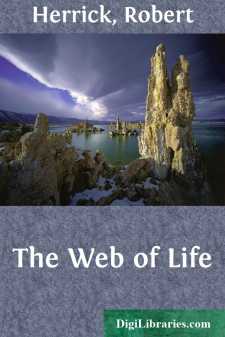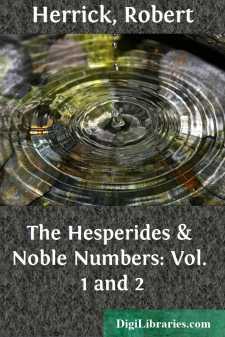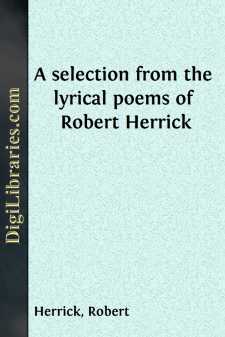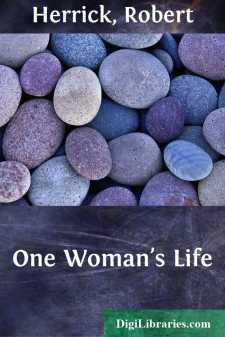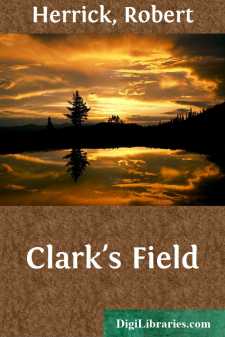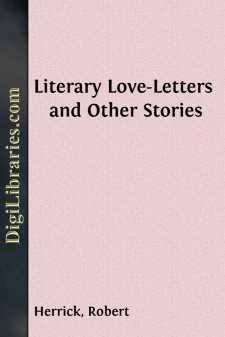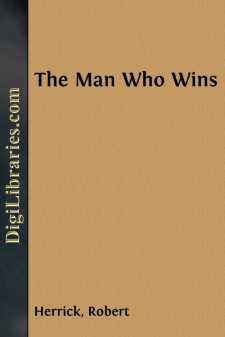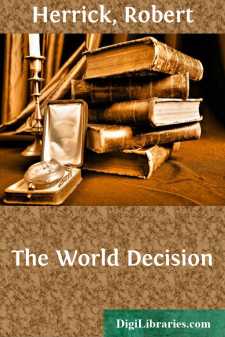Categories
- Antiques & Collectibles 13
- Architecture 36
- Art 48
- Bibles 22
- Biography & Autobiography 815
- Body, Mind & Spirit 144
- Business & Economics 28
- Children's Books 18
- Children's Fiction 14
- Computers 4
- Cooking 94
- Crafts & Hobbies 4
- Drama 346
- Education 58
- Family & Relationships 59
- Fiction 11835
- Games 19
- Gardening 17
- Health & Fitness 34
- History 1378
- House & Home 1
- Humor 147
- Juvenile Fiction 1873
- Juvenile Nonfiction 202
- Language Arts & Disciplines 89
- Law 16
- Literary Collections 686
- Literary Criticism 179
- Mathematics 13
- Medical 41
- Music 40
- Nature 180
- Non-Classifiable 1768
- Performing Arts 7
- Periodicals 1453
- Philosophy 65
- Photography 2
- Poetry 896
- Political Science 203
- Psychology 44
- Reference 154
- Religion 515
- Science 126
- Self-Help 85
- Social Science 83
- Sports & Recreation 34
- Study Aids 3
- Technology & Engineering 60
- Transportation 23
- Travel 463
- True Crime 29
Robert Herrick
Robert Herrick (1591-1674) was an English poet and cleric, best known for his collection of poems, "Hesperides," which includes the famous carpe diem poem "To the Virgins, to Make Much of Time." Herrick's work is characterized by its lyrical beauty, classical influences, and themes of love, nature, and the fleeting nature of life. Although his poetry was not widely recognized during his lifetime, it gained considerable appreciation in later centuries for its charm and stylistic elegance.
Author's Books:
Sort by:
by:
Robert Herrick
CHAPTER I The young surgeon examined the man as he lay on the hospital chair in which ward attendants had left him. The surgeon's fingers touched him deftly, here and there, as if to test the endurance of the flesh he had to deal with. The head nurse followed his swift movements, wearily moving an incandescent light hither and thither, observing the surgeon with languid interest. Another nurse,...
more...
by:
Robert Herrick
PREFACE. It is singular that the first great age of English lyric poetry should have been also the one great age of English dramatic poetry: but it is hardly less singular that the lyric school should have advanced as steadily as the dramatic school declined from the promise of its dawn. Born with Marlowe, it rose at once with Shakespeare to heights inaccessible before and since and for ever, to sink...
more...
by:
Robert Herrick
1. THE ARGUMENT OF HIS BOOK I sing of brooks, of blossoms, birds, and bowers,Of April, May, of June, and July-flowers;I sing of May-poles, hock-carts, wassails, wakes,Of bride-grooms, brides, and of their bridal-cakes.I write of Youth, of Love;—and have accessBy these, to sing of cleanly wantonness;I sing of dews, of rains, and, piece by piece,Of balm, of oil, of spice, and ambergris.I sing of times...
more...
by:
Robert Herrick
CHAPTER I She stood before the minister who was to marry them, very tall and straight. With lips slightly parted she looked at him steadfastly, not at the man beside her who was about to become her husband. Her father, with a last gentle pressure of her arm, had taken his place behind her. In the hush that had fallen throughout the little chapel, all the restless movement of the people who had gathered...
more...
by:
Robert Herrick
THE NEW HOME "Is that the house!" Milly Ridge exclaimed disapprovingly. Her father, a little man, with one knee bent against the unyielding, newly varnished front door, glanced up apprehensively at the figures painted on the glass transom above. In that block of little houses, all exactly alike, he might easily have made a mistake. Reassured he murmured over his...
more...
by:
Robert Herrick
CLARK'S FIELD The other day I happened to be in the town where I was born and not far from the commonplace house in the humbler quarter of the town where my parents were living at the time of my birth, half a century and more ago. I am not fond of my native town, although I lived in the place until I was seventeen or eighteen years old. It was never a distinguished spot and seems to have gained...
more...
by:
Robert Herrick
NO. I. INTRODUCTORY AND EXPLANATORY. (Eastlake has renewed an episode of his past life. The formalities have been satisfied at a chance meeting, and he continues.) … So your carnations lie over there, a bit beyond this page, in a confusion of manuscripts. Sweet source of this idle letter and gentle memento of the house on Grant Street and of you! I fancy I catch their odor before it escapes...
more...
by:
Robert Herrick
The Four Corners in Middleton made a pleasant drive from the university town of Camberton. Many a time in the history of the house a party of young fellows had driven over the old turnpike that started where the arsenal used to stand in the sacred quarter of Camberton, and as the evening sun gilded the low, fresh-water marshes beyond Spring Pond, would trot on toward the rolling hills of Middleton....
more...
by:
Robert Herrick
I Italy Hesitates Last April, when I left New York for Europe, Italy was "on the verge" of entering the great war. According to the meager reports that a strict censorship permitted to reach the world, Italy had been hesitating for many months between a continuance of her precarious neutrality and joining with the Allies, with an intermittent war fever in her pulses. It was known that she was...
more...


